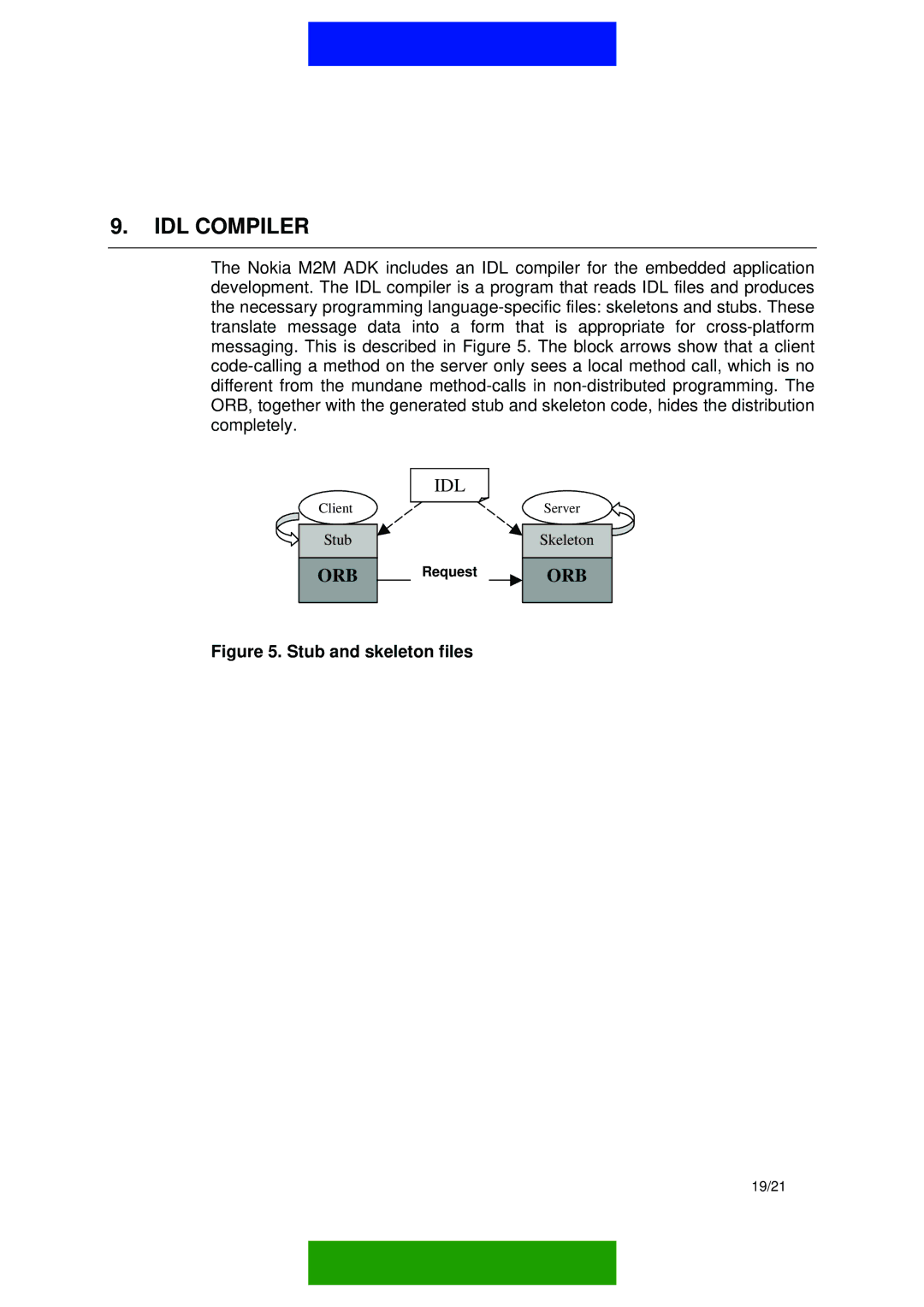M2M PLATFORM specifications
The Nokia M2M (Machine-to-Machine) Platform is a robust solution designed to facilitate the management of interconnected devices in various applications, such as smart cities, industrial automation, and remote monitoring. Its primary goal is to simplify the deployment and operation of IoT (Internet of Things) devices, ensuring seamless communication and data exchange among them.One of the standout features of the Nokia M2M Platform is its scalability. The platform can easily accommodate a growing number of devices, allowing businesses to start small and expand their operations without significant infrastructure changes. This scalability is critical for organizations looking to adapt to the rapidly evolving IoT landscape.
Another key characteristic is its flexibility. The platform supports various communication protocols, including 2G, 3G, 4G, and LPWAN (Low Power Wide Area Network) technologies. This versatility enables effective device connectivity, regardless of the environment or deployment scenario. Additionally, by supporting both public and private network architectures, the Nokia M2M Platform allows companies to choose the best option for their requirements.
Security is a top priority for the Nokia M2M Platform. It incorporates advanced encryption techniques, secure data storage, and robust authentication protocols to ensure the integrity and confidentiality of the data being exchanged. This commitment to security helps to protect sensitive information and builds trust with end-users.
The platform also boasts powerful analytics capabilities, offering real-time insights and data-driven decision-making tools. Businesses can leverage these analytics to monitor device performance, optimize operations, and predict maintenance needs, ultimately reducing costs and improving efficiency.
Integration capabilities further enhance the platform’s value proposition. The Nokia M2M Platform easily interacts with existing enterprise systems and third-party applications through open APIs. This interoperability facilitates seamless data exchange and allows businesses to harness the full potential of their IoT investments.
Lastly, user-friendly interfaces and management tools provide a streamlined experience for operators and administrators. These tools simplify device provisioning, monitoring, and management, ensuring that organizations can efficiently oversee their connected ecosystems.
In summary, the Nokia M2M Platform is a comprehensive solution designed to empower businesses in the IoT space. With its scalability, flexibility, robust security, analytics capabilities, and integration potential, it serves as a powerful foundation for organizations looking to harness the benefits of machine-to-machine communication.

